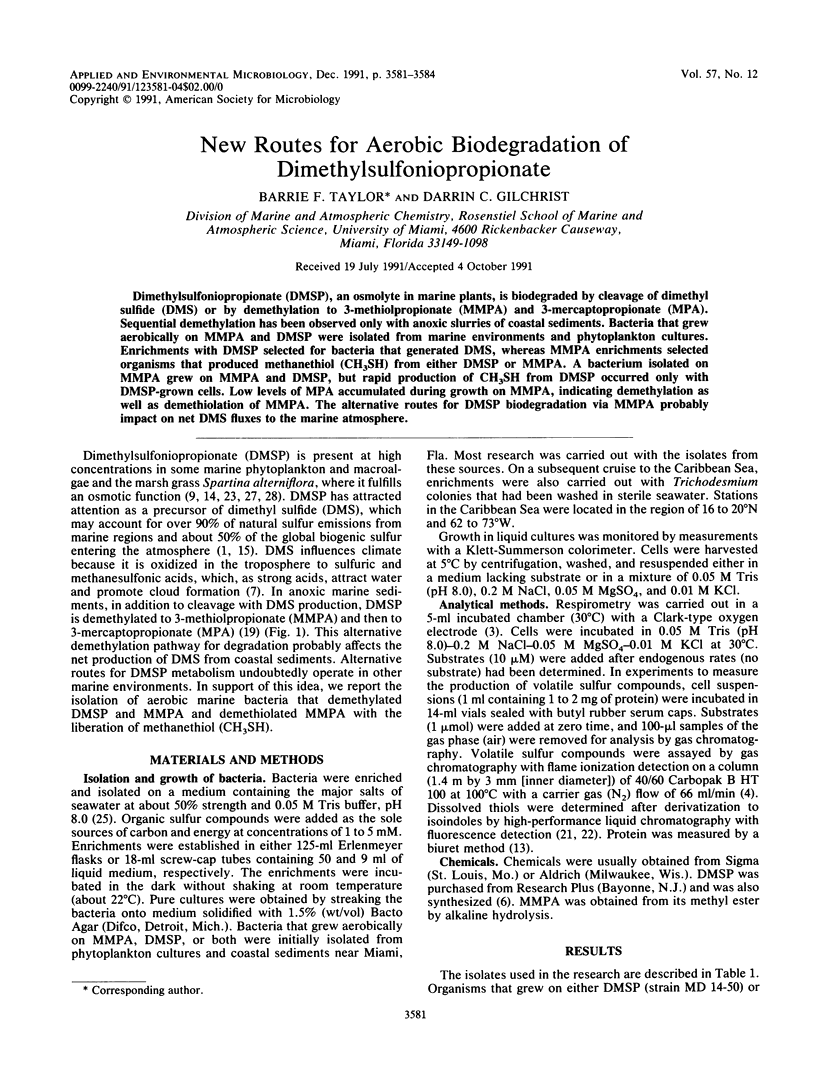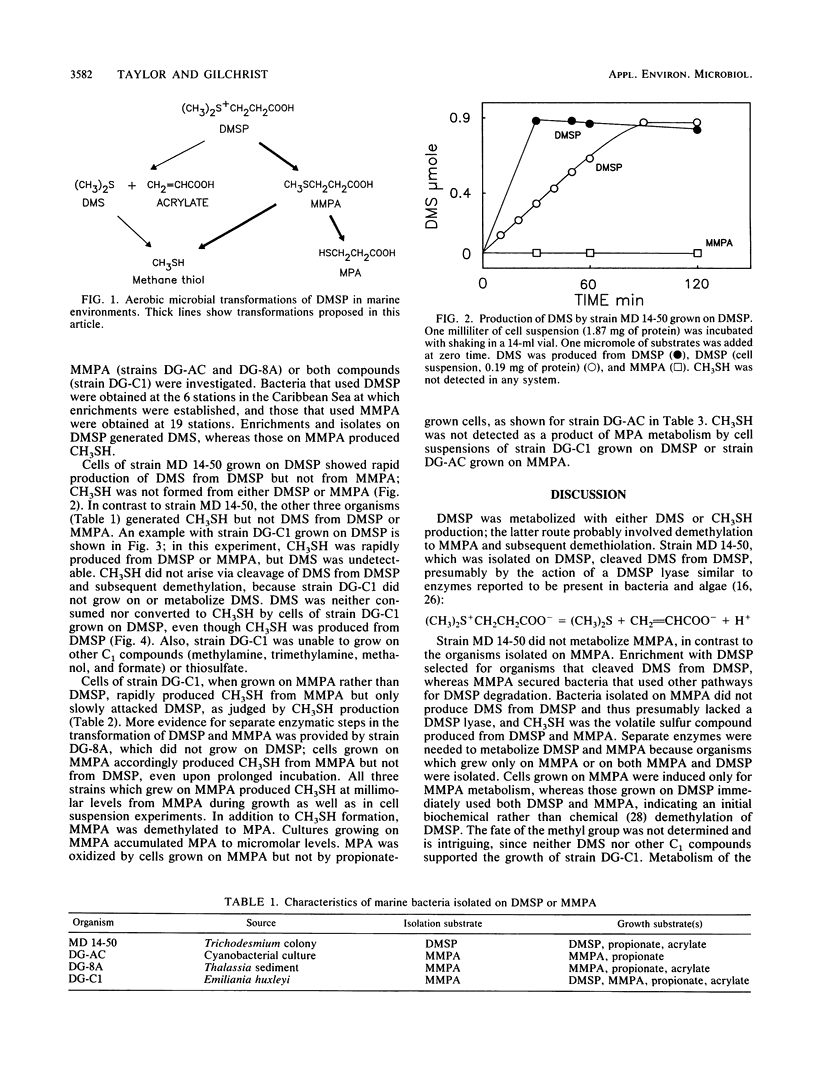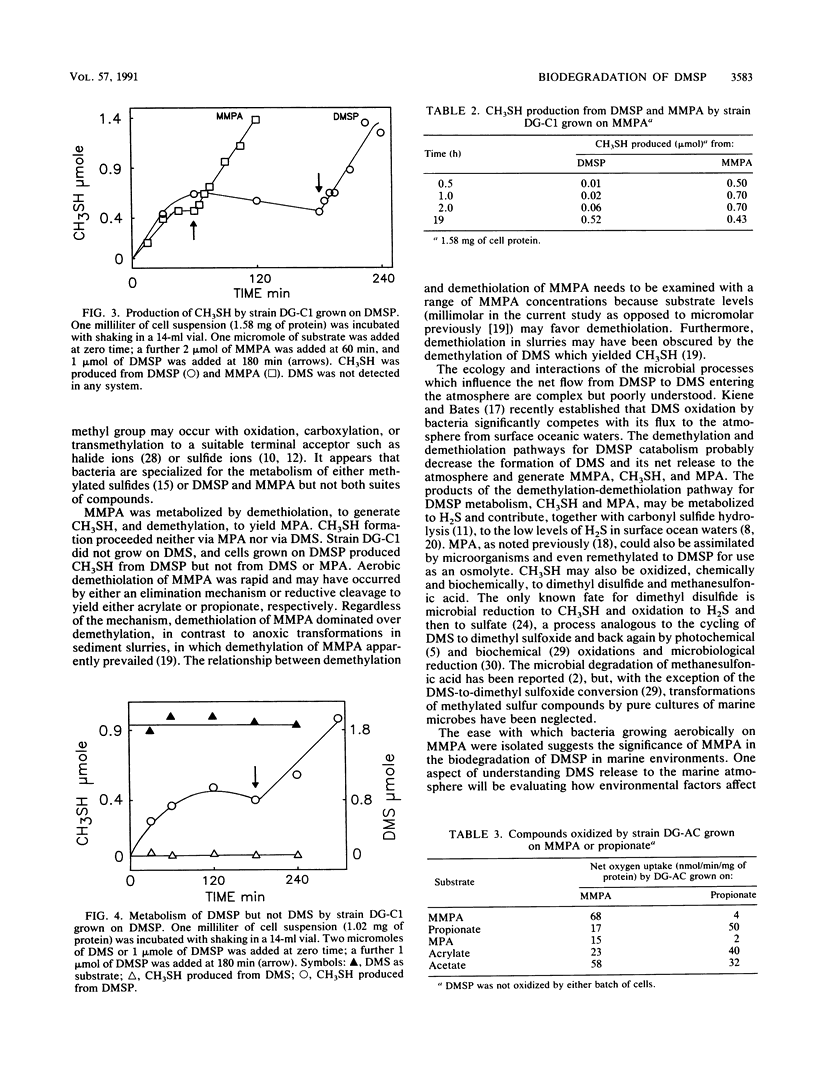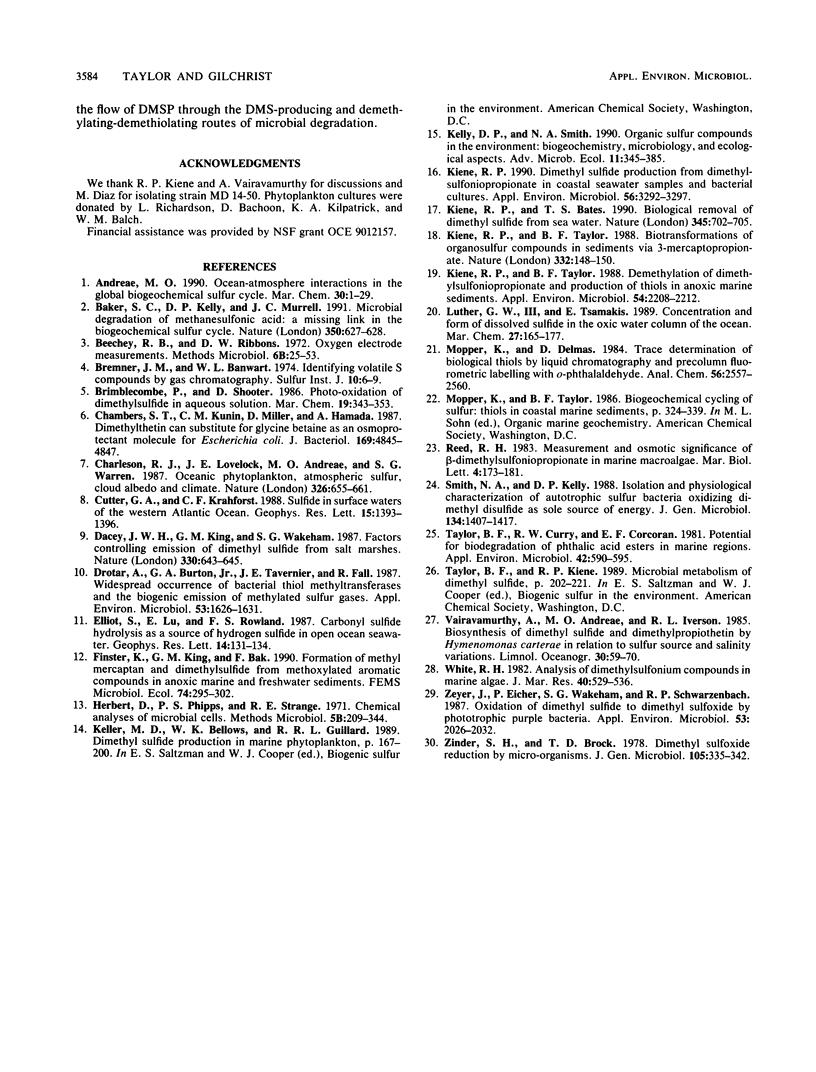Abstract
Dimethylsulfoniopropionate (DMSP), an osmolyte in marine plants, is biodegraded by cleavage of dimethyl sulfide (DMS) or by demethylation to 3-methiolpropionate (MMPA) and 3-mercaptopropionate (MPA). Sequential demethylation has been observed only with anoxic slurries of coastal sediments. Bacteria that grew aerobically on MMPA and DMSP were isolated from marine environments and phytoplankton cultures. Enrichments with DMSP selected for bacteria that generated DMS, whereas MMPA enrichments selected organisms that produced methanethiol (CH3SH) from either DMSP or MMPA. A bacterium isolated on MMPA grew on MMPA and DMSP, but rapid production of CH3SH from DMSP occurred only with DMSP-grown cells. Low levels of MPA accumulated during growth on MMPA, indicating demethylation as well as demethiolation of MMPA. The alternative routes for DMSP biodegradation via MMPA probably impact on net DMS fluxes to the marine atmosphere.
Full text
PDF



Selected References
These references are in PubMed. This may not be the complete list of references from this article.
- Chambers S. T., Kunin C. M., Miller D., Hamada A. Dimethylthetin can substitute for glycine betaine as an osmoprotectant molecule for Escherichia coli. J Bacteriol. 1987 Oct;169(10):4845–4847. doi: 10.1128/jb.169.10.4845-4847.1987. [DOI] [PMC free article] [PubMed] [Google Scholar]
- Drotar A., Burton G. A., Jr, Tavernier J. E., Fall R. Widespread occurrence of bacterial thiol methyltransferases and the biogenic emission of methylated sulfur gases. Appl Environ Microbiol. 1987 Jul;53(7):1626–1631. doi: 10.1128/aem.53.7.1626-1631.1987. [DOI] [PMC free article] [PubMed] [Google Scholar]
- Kiene R. P. Dimethyl sulfide production from dimethylsulfoniopropionate in coastal seawater samples and bacterial cultures. Appl Environ Microbiol. 1990 Nov;56(11):3292–3297. doi: 10.1128/aem.56.11.3292-3297.1990. [DOI] [PMC free article] [PubMed] [Google Scholar]
- Kiene R. P., Taylor B. F. Demethylation of dimethylsulfoniopropionate and production of thiols in anoxic marine sediments. Appl Environ Microbiol. 1988 Sep;54(9):2208–2212. doi: 10.1128/aem.54.9.2208-2212.1988. [DOI] [PMC free article] [PubMed] [Google Scholar]
- Mopper K., Delmas D. Trace determination of biological thiols by liquid chromatography and precolumn fluorometric labeling with o-phthaladehyde. Anal Chem. 1984 Nov;56(13):2557–2560. doi: 10.1021/ac00277a064. [DOI] [PubMed] [Google Scholar]
- Taylor B. F., Curry R. W., Corcoran E. F. Potential for biodegradation of phthalic Acid esters in marine regions. Appl Environ Microbiol. 1981 Oct;42(4):590–595. doi: 10.1128/aem.42.4.590-595.1981. [DOI] [PMC free article] [PubMed] [Google Scholar]
- Zeyer J., Eicher P., Wakeham S. G., Schwarzenbach R. P. Oxidation of dimethyl sulfide to dimethyl sulfoxide by phototrophic purple bacteria. Appl Environ Microbiol. 1987 Sep;53(9):2026–2032. doi: 10.1128/aem.53.9.2026-2032.1987. [DOI] [PMC free article] [PubMed] [Google Scholar]
- Zinder S. H., Brock T. D. Dimethyl sulphoxide reduction by micro-organisms. J Gen Microbiol. 1978 Apr;105(2):335–342. doi: 10.1099/00221287-105-2-335. [DOI] [PubMed] [Google Scholar]


